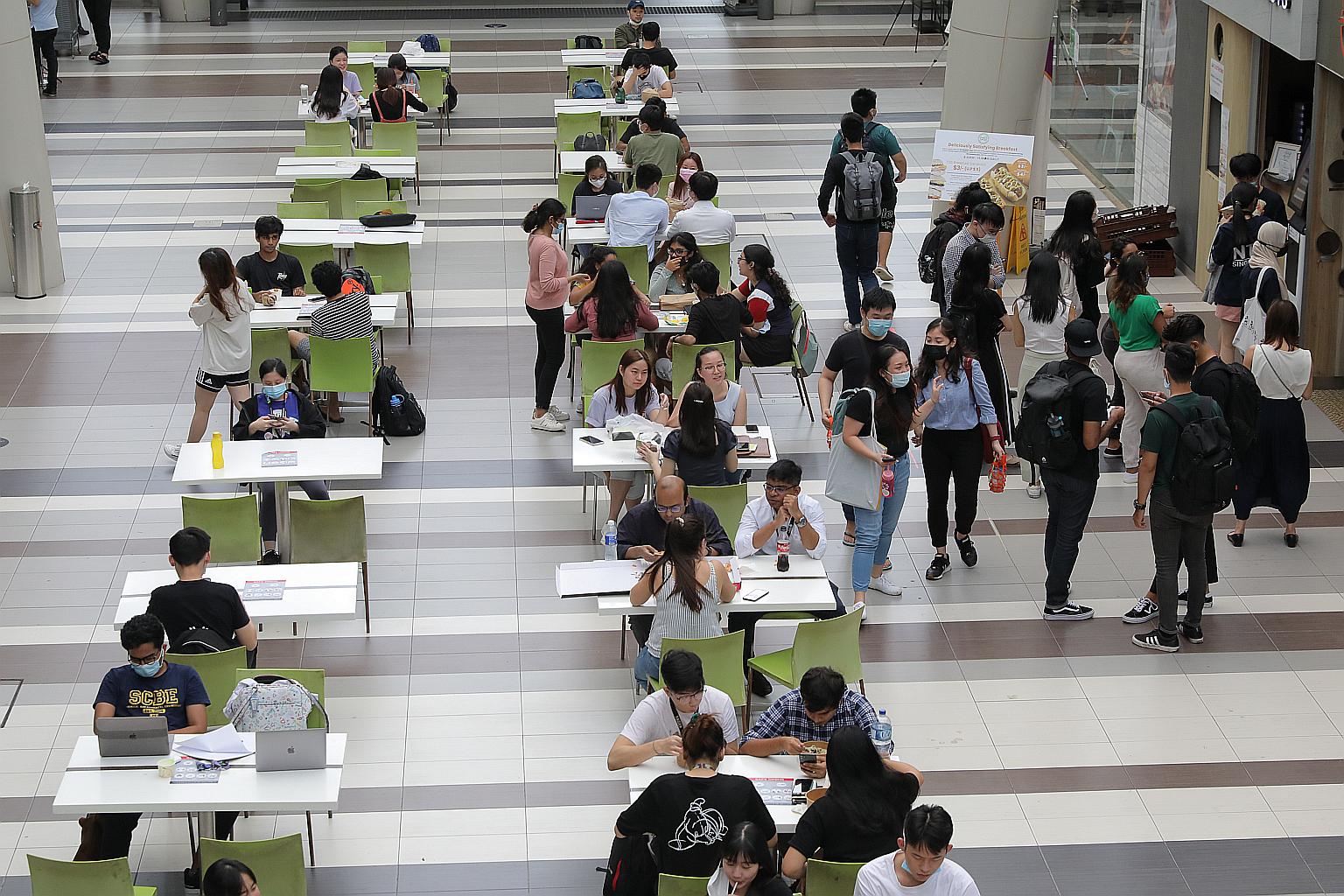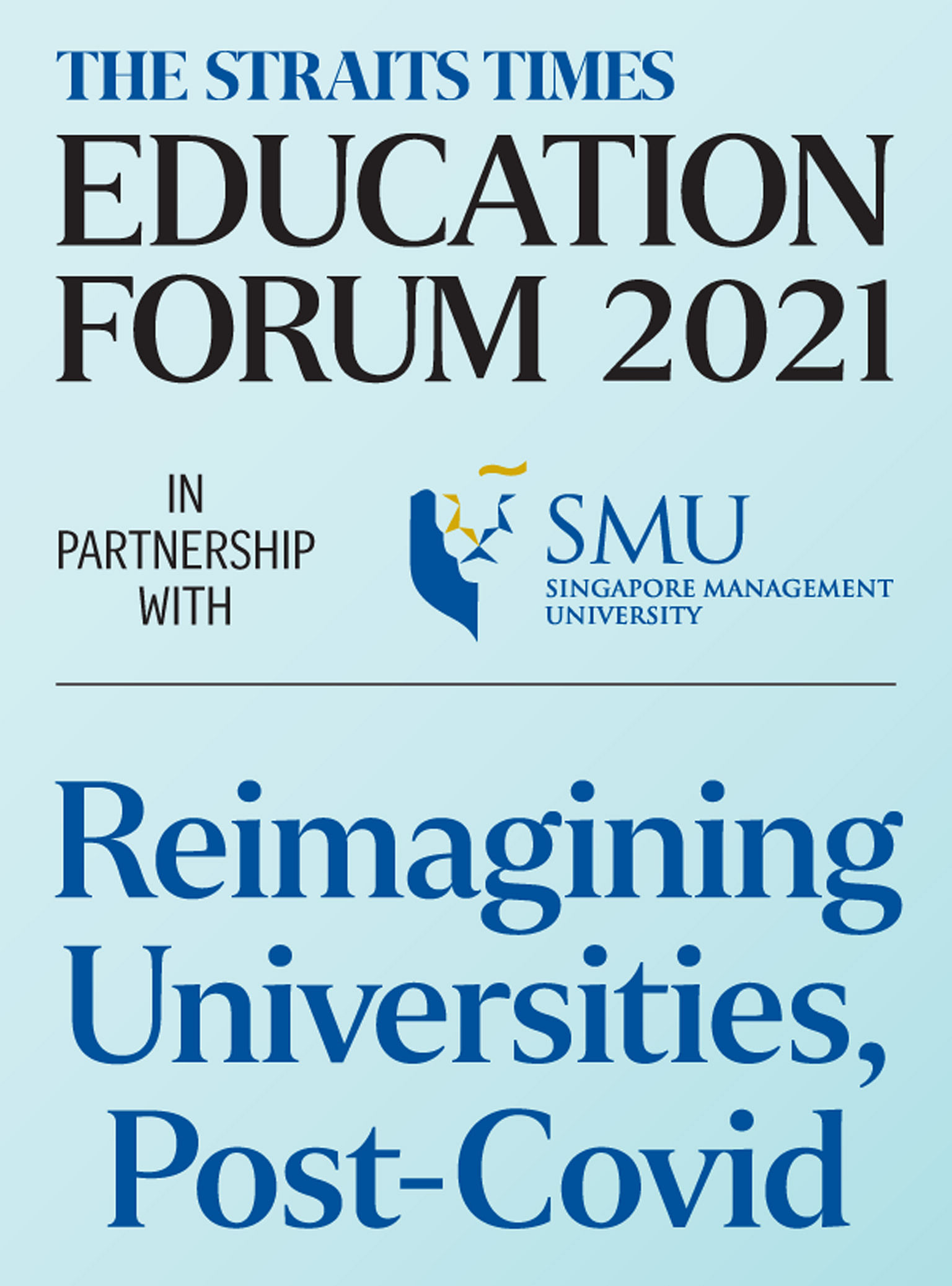News analysis
ST Education Forum: Covid-19 presents opportunity to revitalise university education
Sign up now: Get ST's newsletters delivered to your inbox

The switch to online learning has also led students and parents to reconsider the price and value proposition of higher education.
ST PHOTO: ONG WEE JIN
Follow topic:
SINGAPORE - Blended or hybrid models of degree education and accreditation of skills acquired through non-traditional modes of learning are not new considerations for universities.
For years, institutions have discussed, debated and experimented with various modes of teaching and learning.
The pandemic, though, forced them to make online delivery the mainstay, and even move their examinations and yearly admission exercises online.
In the process, universities have been forced to adapt and adjust the way in which they deliver their programmes.
The forced experiment with online instruction gave them a first-hand close-up view of the benefits and the limitations of these different modes and technologies.
This has also significantly lowered the psychological barriers to adopting non-traditional modes of teaching and learning. This is not just for students, but also faculty.
The switch to online learning has also led students and parents to reconsider the price and value proposition of higher education.
For quite a while now, there have been questions over whether the traditional four-year degree route is best suited for current needs.
Some posit that shorter, nimbler, skills-focused courses that provide just-in-time learning are more suited to a digital economy, where continuous upskilling is needed to keep pace with technological advances.
Various pundits, including New York University Stern School professor Scott Galloway, have predicted that post-Covid-19, the big technology companies are likely to make moves to disrupt higher education.
Prof Galloway, who wrote the book Post Corona: From Crisis To Opportunity, predicts that the likes of Apple and Google will join forces with elite universities in the United States to offer hybrid degrees.
Think iStanford and MIT @ Google - online learning combined with on-campus learning.

This may not be a negative thing for higher education, especially in the US, where tuition fees have gone up 1,400 per cent over the past 40 years.
It will moderate costs and enable more students to access the best university education that American institutions have to offer.
But is this likely to happen in Singapore? After all, we are not subject to the same push factors - steep rises in tuition fees and student debt.
But if Prof Galloway's predictions come true and we see big technology companies and elite universities join forces, then they are likely to want to reach out to the world and not confine themselves to students in their home countries.
If Stanford or the Massachusetts Institute of Technology (MIT) were to offer hybrid degrees that are fully accredited by the universities and certified by the likes of Apple or Google, their offerings are likely to become an attractive option for students around the world, including Singapore.
At The Straits Times Education Forum held on Friday (Feb 5), questions on costs and affordability of university education came up time and again.
It is an issue that cannot be ignored by universities and governments, as the pandemic has hurt many families and laid bare the divides and inequities in society.
Already, there are parents who have expressed worries about whether they can afford a polytechnic or university education for their children.
But it's not just a matter of being able to afford the fees. Some of them have been hit so hard that they need their children to go out to work to help support the family.
In recent years, the Ministry of Education and the universities have increased their financial help, and also created multiple pathways, to give disadvantaged students more opportunities to progress to higher education.
It was heartening to hear Education Minister Lawrence Wong, who spoke at the forum, make a pledge to keep university education accessible and affordable. He said it has and will continue to be a key priority for his ministry.
Overall, there is reason to be optimistic.
As Mr Wong said, Singapore's universities have not been stuck in time and have continued to innovate in many areas.
"Our approach has been not to allow external forces to disrupt us, but to proactively disrupt ourselves instead," he said of the six local universities.
With this openness to innovate, we can expect that the longer-term effect will be a revitalising of university education through new thinking and technologies.

